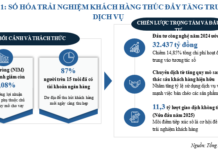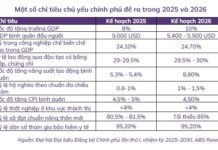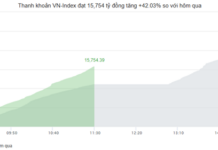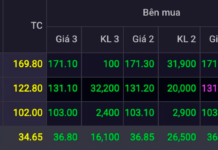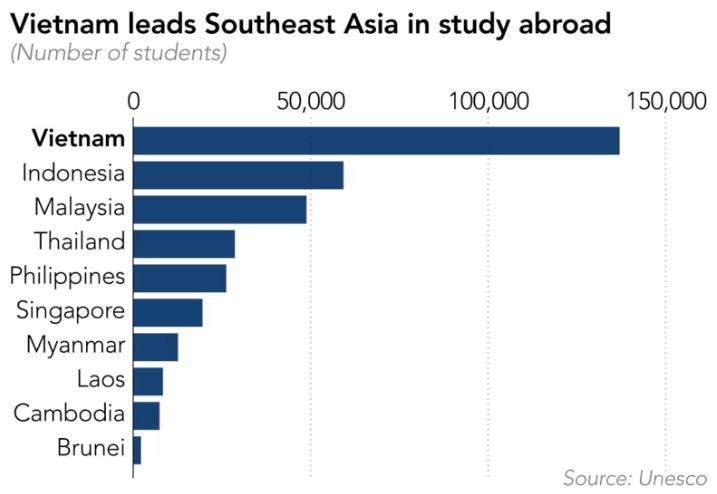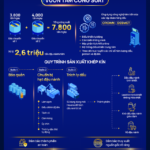In an investment exercise, Tuấn Anh chose gold and received the second worst result in the class. It made him realize that the majority of the world does not think like Vietnam, where many people pour money into gold before the stock market and real estate develop.
He brought that expanded worldview back to his homeland. Many tech talents are returning to Vietnam, not only to boost the electronics supply chain to challenge China but also to promote the rapidly developing digital economy. Many countries dream of developing their own Silicon Valley. In Vietnam, when it comes to such an innovation hub, one often overlooks one of the competitive advantages, which is the people who have studied abroad.
For a long time, Vietnam has sent more students abroad than its neighboring countries. These students travel the world and learn skills, accumulating a priceless network for themselves when they return.
“The UK education instilled in us a sense of purpose in our work, rather than just making money,” Tuấn Anh, CEO of Solano, a startup with the goal of popularizing the use of solar panels, said.
After more than two decades of sending students to study abroad, Vietnam is now “reaping the rewards.” The first generations have graduated and worked, often abroad, and now they bring their experience back to Vietnam when their careers are ripe.
In the US, Vietnam has been among the top 10 leading sources of international students for over a decade. According to official US data, by 2022, Vietnam ranked 5th in terms of the number of students studying there.
The popularity of foreign programs reached the point where universities span from Finland to South Korea consider Vietnam to be the country with the largest proportion of students. In the US, the Congress launched a scholarship called the Vietnam Education Foundation (VEF) in 2003 to attract students.
|
Vietnam leads Southeast Asia in the number of international students
|
Tú Ngô, a VEF investor and scholar, said that the fund is a typical example of a “sweet investment,” as former students have grown up and established their positions in Vietnam’s economy. The contemporaries continuously founded startups such as machine-learning provider Palexy and Zalo messaging app of technology unicorn VNG (HOSE: VNZ).
In general, prestigious universities such as Harvard and Cambridge have trained a class of Vietnamese people who later return to the country to lead all sorts of technology companies, including Tap Tap, Uber Vietnam, and logistics startup Abivin.
There are more and more graduate students choosing to return and settle in Vietnam. As this economy achieves world-leading growth rates and attracts companies like LG and Alibaba, the brain drain has also declined sharply.
But in some aspects, the performance has yet to catch up with the potential.
Apple suppliers said they couldn’t find enough engineers in Vietnam. Vietnam has also not produced a startup like Indonesia’s Gojek or Singapore’s Shopee that can truly take its brand global.
According to a study by Google, Temasek, and Bain on 6 large countries in Southeast Asia, Vietnam is forecast to see the region’s largest growth in both the scale of the internet economy by 2025 and risky investments from 2025 to 2030.
Tú Ngo told Nikkei: “Investors often say Vietnam has a lot of potential, but the challenge lies in finding founders and partners they can trust to build businesses with high management standards and integrity. We believe this bridge generation can take everything forward, shaping new perceptions of businesses in Vietnam.”






